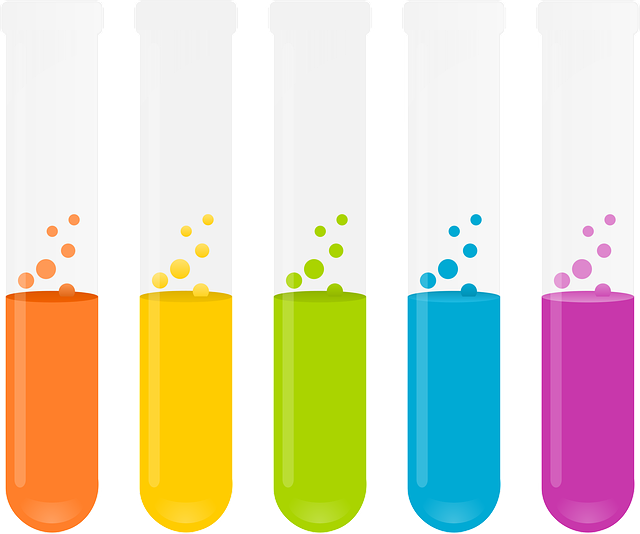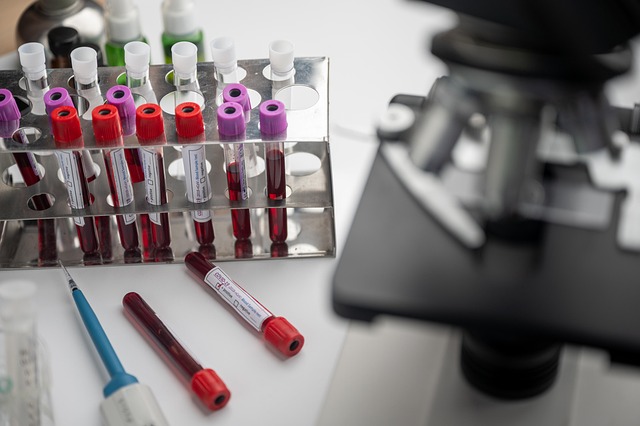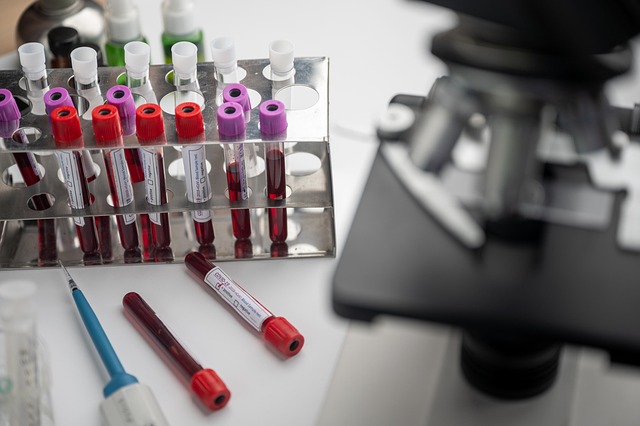Precision in scientific translation is paramount for UK journals to maintain research integrity and global credibility. Rigorous QA protocols, including peer review by subject experts, are essential to ensure accuracy and clarity. Choosing reputable services with native scientists and advanced technology guarantees error-free translations, preserving the quality of UK scientific literature. Balancing legal/ethical considerations ensures public safety while adhering to guidelines for intellectual property, data privacy, and terminology precision. Future trends include AI integration and human-AI collaboration for enhanced efficiency and accuracy in translation services for UK Scientific Journals.
In the global scientific community, ensuring accurate translations of research papers is paramount. This article explores the intricate challenges surrounding translation accuracy in UK scientific journals. From understanding common errors to implementing quality assurance measures, we delve into strategies to maintain research integrity. We discuss the importance of choosing reputable translation services, tackling specialized terminology, and adopting best practices. Additionally, legal aspects, ethical considerations, and future trends in enhancing translation accuracy for UK scientific journals are highlighted.
- Understanding Translation Errors in Scientific Journals
- The Impact of Inaccurate Translations on Research Integrity
- Quality Assurance: Essential for UK Journal Translations
- Choosing Reliable Translation Services for Scientific Papers
- Common Challenges in Translating Specialized Scientific Terminology
- Ensuring Accuracy: Best Practices for Journal Translation
- Legal and Ethical Considerations in Scientific Translation Services
- Future Trends: Enhancing Translation Accuracy in the UK
Understanding Translation Errors in Scientific Journals

Scientific communication relies heavily on accurate translations, especially in highly specialized fields. When it comes to UK scientific journals, where research from diverse languages is frequently published, understanding and minimizing translation errors are paramount. These errors can range from simple grammatical mistakes to more complex issues like conceptual misinterpretations or cultural nuances missed.
Translation services for UK Scientific Journals must employ rigorous quality assurance processes to catch these errors. This includes using native-speaking editors alongside advanced translation memory software that tracks terms and phrases across multiple documents, ensuring consistency. Additionally, peer review remains a critical step, where subject experts verify the accuracy and clarity of translations, especially in fields with specific terminology or unique research methodologies.
The Impact of Inaccurate Translations on Research Integrity

Inaccurate translations in scientific journals can have profound implications for research integrity and credibility. When research findings are incorrectly conveyed, it introduces a risk of misinterpretation or misapplication of data, leading to potentially harmful consequences in fields like medicine, environmental science, and biotechnology. For instance, an off-target translation might suggest a false correlation between a chemical compound and a medical condition, prompting further investigation that is not only inefficient but also ethically questionable.
Moreover, inaccurate translations erode the trustworthiness of scientific literature and the journals themselves. Researchers worldwide rely on these publications to stay informed about cutting-edge discoveries; any mistranslation can lead to widespread adoption of incorrect information. This issue is particularly pertinent in the UK, where academic research enjoys global recognition, and translation services play a pivotal role in sharing this knowledge internationally. Thus, ensuring high-accuracy translations for UK scientific journals is paramount to upholding rigorous standards in scientific communication.
Quality Assurance: Essential for UK Journal Translations

In the realm of academic publishing, precision and accuracy are paramount, especially when it comes to scientific journal translations. For translation services for UK scientific journals, Quality Assurance (QA) processes play a crucial role in maintaining the integrity of research and ensuring the highest standards. These rigorous QA measures are essential to guarantee that translated articles remain faithful representations of the original content, preserving the meaning and intent behind each word.
UK journal publishers increasingly demand translation service providers implement robust QA protocols. This involves multiple layers of review by language experts who scrutinize the translated text for grammatical correctness, semantic coherence, and adherence to the source document’s style and tone. By prioritizing these measures, translation services for UK scientific journals can deliver reliable, error-free translations that facilitate global access to scientific knowledge without compromising quality.
Choosing Reliable Translation Services for Scientific Papers

Choosing reliable translation services is paramount when submitting scientific papers to UK journals. The field of science is constantly evolving, demanding precise and up-to-date translations to ensure research accuracy. When selecting a translation provider for your academic work, look for specialists who understand the nuances of scientific terminology and have extensive experience in serving the specific journal(s) you aim to publish in.
Reputable translation services for UK scientific journals should employ native speakers with advanced degrees in relevant fields, such as biology, chemistry, or physics. They must also adhere to strict quality control measures, including peer review and proofreading, to guarantee error-free translations that maintain the integrity of your research.
Common Challenges in Translating Specialized Scientific Terminology

Translating scientific journals, especially those focused on niche subjects, presents unique challenges due to the specialized terminology used. The complexity of accurately conveying technical concepts across languages is a significant hurdle for translators. Each field has its own jargon and terminology, which can be complex even for native speakers. When translating articles intended for publication in UK scientific journals, understanding the nuances of both the source and target languages becomes critical.
One of the primary challenges lies in finding equivalent terms that capture the precise meaning without losing technical accuracy. For example, medical or biological terms often have specific definitions within a discipline, making it difficult to translate directly into another language. Translators must possess a deep understanding of the subject matter to ensure concepts are conveyed accurately and consistently throughout the article. Additionally, keeping up with advancements in research and regularly updating translation references is essential to provide current and relevant content for UK scientific journal publications.
Ensuring Accuracy: Best Practices for Journal Translation

Ensuring accuracy in scientific journal translations is paramount, especially with the global reach and diverse readership of academic publications. When it comes to UK scientific journals, high-quality translation services are essential to convey research findings precisely. Best practices involve engaging professional translators familiar with scientific terminology and the specific field of study.
Additionally, implementing quality assurance measures such as peer review and editing by subject experts can significantly enhance accuracy. Translation memory tools and reference materials should be utilized to maintain consistency in terms and concepts across different journal issues and articles. For UK scientific journals aiming for international dissemination, meticulous translation processes are key to preserving the integrity of research while reaching a broader audience.
Legal and Ethical Considerations in Scientific Translation Services

When utilizing translation services for UK scientific journals, it’s imperative to consider both legal and ethical aspects. The accuracy and integrity of scientific translations are paramount as they can impact research credibility and public safety. Professional translators must adhere to strict guidelines to ensure precise communication of complex scientific concepts. Legal considerations include compliance with intellectual property rights, data privacy regulations, and ensuring the translated content avoids any potential copyright infringements.
Ethically, translators bear a responsibility to maintain the original meaning and context, refraining from introducing biases or errors. This is especially critical in the scientific domain where precise terminology and methodology are vital. Reputable translation services employ native speakers with specialized scientific knowledge to mitigate these risks, guaranteeing translations that meet both legal standards and ethical best practices.
Future Trends: Enhancing Translation Accuracy in the UK

The future of translation services for UK scientific journals looks promising, with continuous advancements in technology and an increasing focus on precision. One prominent trend is the integration of artificial intelligence (AI) and machine learning algorithms, which can significantly enhance accuracy and efficiency. AI-powered tools are becoming more sophisticated, capable of understanding complex scientific terminology and contextual nuances. These technologies can adapt to specific journal styles, ensuring consistent quality across various publications.
Additionally, the UK’s commitment to fostering diversity in science is driving the development of specialized translation services. As research becomes increasingly global, the demand for accurate translations that capture cultural and linguistic subtleties is growing. Future trends may include more human-AI collaboration, where professional translators leverage AI tools for initial drafts, followed by meticulous proofreading to guarantee precision and maintain the integrity of scientific content.
The accuracy of scientific journal translations is paramount to preserving research integrity and fostering global collaboration. By understanding common translation errors, implementing robust quality assurance measures, and choosing reputable services, UK scientific journals can enhance their international reach. Adhering to best practices and considering legal and ethical aspects ensures reliable communication across linguistic barriers. As technology advances, focusing on improving specialized terminology and leveraging future trends will further elevate the accuracy of translations in UK scientific journals, thereby facilitating a more inclusive and impactful research landscape. When selecting translation services for UK scientific journals, prioritizing quality and expertise is key to achieving precise and culturally sensitive communications.
